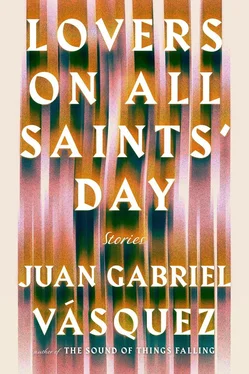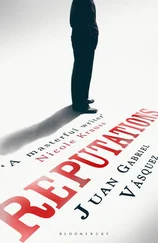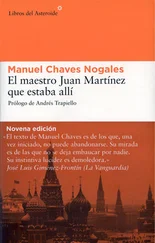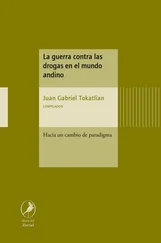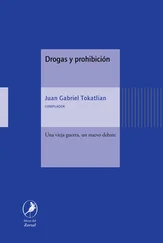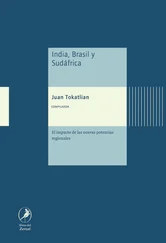Oliveira stepped lightly on the accelerator. There was something familiar in that situation, a certain domestic ease that made it unlike a one-night stand. He opened the window as he passed her: a husband coming home, a man expected somewhere.
“Thanks,” he said.
“It’s like Ali Baba’s cave,” said Agatha.
The room was on the second floor. They had to go up a couple of flights of stairs with green carpeting, so worn that their feet barely felt it, and walk down to the end of an ammonia-scented corridor. Only the electric hum of an ice machine broke the silence. When they got to number 17, again she was the one who punched in the code. The tones they found when they entered were violets and fuchsias, the bedspread a lewd purple, the metal bed frame was pink like icing. Beside the bed a half-length mirror reflected a man not as young as Oliveira. He ran his hands over his temples and some loose hairs stuck to them, and he noticed calmly that his forehead had broadened over the last couple of years, like a shoreline during floods.
“Three nine, nine three,” she said.
“What about it?”
“It begins with my age and ends with my age.”
Oliveira kept his face as straight as a gambler’s. He could smell the woman’s breath, sour from wine and lipstick.
“But backward, no?”
“Yes, backward,” said Agatha. “It would be a palindrome of my age if the numbers in between weren’t so disorderly.”
Agatha crossed her arms over her waist and took off her blouse without even unbuttoning it, as carefree as someone trying on old clothes in a theater dressing room. Her breasts had white parallel stretch marks like trails of milk. Between the cups of her cotton bra hung a silver cross that Oliveira hadn’t seen when they pulled out of the gas station. The Christ, as if made of pearl, seemed stained by lotions, perfumes, and sweat.
“Did I tell you what your surname would be in Iceland?”
Oliveira shook his head, his back to her. He was looking for a hanger in the closet to keep his shirt from getting wrinkled. He couldn’t help smiling: a bachelor’s habits.
“Franciscosson,” said Agatha. “That’s what your surname would be. Horrible, don’t you think?”
II
He had found her (it was exactly the right verb) at an exhibition of circus horses six kilometers north of Beauvais, on the property the equestrian Francisco Oliveira’s heirs, one of whom he had no desire to be, had turned into a fairground. The place was no more than five minutes off the A16, but the willows and the whistling of the wind and the horses kicking in their stalls, or perhaps a combination of it all, warded off the din of traffic like erasing the static on a tape recording. At dusk, when the public had left, Oliveira wanted to take one last look at his father’s property, not out of any kind of nostalgia, but in order, later in his life, to be able to describe what he’d given up. There were people in the livery stable. Oliveira circled around the back wall, trying to identify the voices coming from inside without being seen. He peered through the cracks in the wood: there was Antonio, the Portuguese man who’d looked after the stables for the last seven years, accompanied by a woman. Between them, a Lusitanian stallion lowered and raised his head. It could be Elmo, might be Urano. Oliveira never called the horses by their names; he refused to put himself on the same level as them in his father’s regard. Urano, Elmo, Oliveira junior: three different forms of the old rider’s satisfactions. Was that what Oliveira had been, one more lodger at the stables? As a boy, that question had frequently crossed his mind. Now, about to leave it all behind, he was almost ashamed of remembering those regrets.
He walked around the side of the livery stable and undid the wooden bar latch. The bar fell beside him with a crash that startled the woman. The horse didn’t bat an eyelid. Oliveira realized he was sedated.
“Don’t stand there gawking,” she said. “Come and help us.”
“I don’t know anything about horses,” said Oliveira.
The woman wore a cooking apron that said MON ROYAUME POUR UN CHEVAL. Her hair was the color of a crow’s feather, and her angular, sad facial features looked as though they’d been carved with a knife on a bar of soap. She obviously didn’t know she was speaking to the son of Francisco Oliveira.
“You know how to hold a bag up in the air,” she said.
Oliveira approached. Minutes earlier he’d been walking beside the stream that flows out of the Thérain, and now the sawdust stuck to his shoes and the hems of his jeans. The woman handed him a clear plastic bag half full of a transparent liquid. It wasn’t sunny, but the slanted winter light still managed to play with the prism of water in the bag. On Oliveira’s wrist and arm it drew red, yellow, and purple figures. From the bag a tube descended and disappeared into the animal’s side; they had shaved the area where the needle went in. Oliveira felt the absurd sensation of localized cold, as if only in that space where the flesh was visible the skin bristled. He looked through the bag. He saw the oblong sign on which Francisco Oliveira had summarized his idea of horsemanship: CADENCE, LÉGÈRETÉ, GÉOMÉTRIE. He saw two deformed heads — a soapstone bust that had once been beautiful, black, lively hair — and the huge eyes of a horse beginning to nod off.
“Hold the bag up high,” said the woman. “Above your shoulder, at least.”
The horse began to wobble. His front legs trembled for an instant, and then his body fell sideways like the façade of a building, raising a cloud of sawdust with the dull thud of his flesh. But he refused to put his head on the floor, and the woman had to kneel on his neck and all her weight was barely able to overcome the patient’s resistance. The horse blinked; he panted; his lips hung open like resin revealing the pink gums, the white teeth hard as plaster. Antonio tied a strap around the left hoof and fastened it to the railing of the stands. As he pulled the strap, the horse’s legs separated and revealed the genitals, black as oil against the brown of the groin. The woman brushed the dust off the testicles with her bare hands, washed the area with a bile-colored liquid and then with hot water, and an apparition of steam rose in the cold air. She moved her hands in the pail of water — Oliveira noticed the edges dirty with dog food — dried them with a mauve towel that she spread out on top of the sawdust, and on the towel the instruments for the operation. The woman took out of an aluminum case a small scalpel, the size of her little finger, and drew a precise line on the horse’s scrotum. It wasn’t as if she were cutting: the scalpel was a felt-tip pen and the animal’s skin fine paper. But the blade had cut. The scrotum opened like fruit rind, separated as if it had a life of its own, and the smooth white testicles were exposed to the air, luminous against the black skin.
Then the woman made another cut. The first trickle of blood appeared; immediately the white fruit of the testicles was covered in red. The woman squeezed both hands at the base of the scrotum and the testicles popped out. She raised the scalpel and cut something else, but at that moment Oliveira had to kneel down in the sawdust because he felt his head emptying of blood and the world before his eyes turning black.
“What’s the matter?” said the woman.
“He’s going to faint,” said Antonio.
“Stand up, for God’s sake. I need that serum flowing.”
Oliveira heard them, but had no voice.
“Well, you hold the bag, Antonio. I’ve almost finished.”
Oliveira didn’t see her finish. He stayed on his knees, his back to the animal. When he turned around, a sort of masculine shame kept him from looking between the horse’s legs: his gaze came to rest on the horseshoes that reflected the darkened sky. In this cleansing space the woman appeared, and Oliveira thought the fatigue in her expression was not the result of the operation, but had been with her for a long time.
Читать дальше
